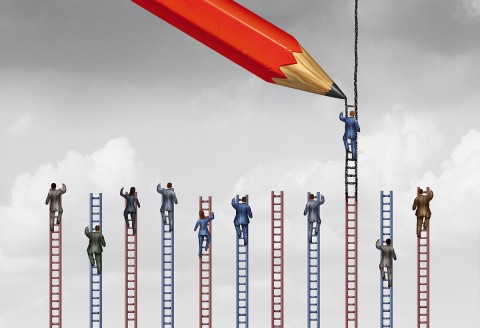The 2017 tax law is getting even worse
The law’s assistance to lower-income Americans was modest—and temporary.

In 2017 the Republican Party controlled the White House and both houses of Congress. Four years later the Democrats do, however narrowly. Their to-do list is long. The nation faces new crises of public health, violent extremism, and democratic integrity. Meanwhile, its older problems have hardly gone away.
One problem that has fallen out of the headlines is economic inequality. It persists—in fact, the pandemic has exacerbated it. And it’s intricately connected to other pressing issues. Will the new Congress take it on?
The GOP’s time in power produced exactly one major law: the 2017 tax cuts. Promoted as tax relief for all, the bill was mostly a gift to corporations, with relief for individuals ranging from modest to nonexistent. And that was just its immediate provisions. The worst of it was designed to take effect later, after the public’s attention moved on.




